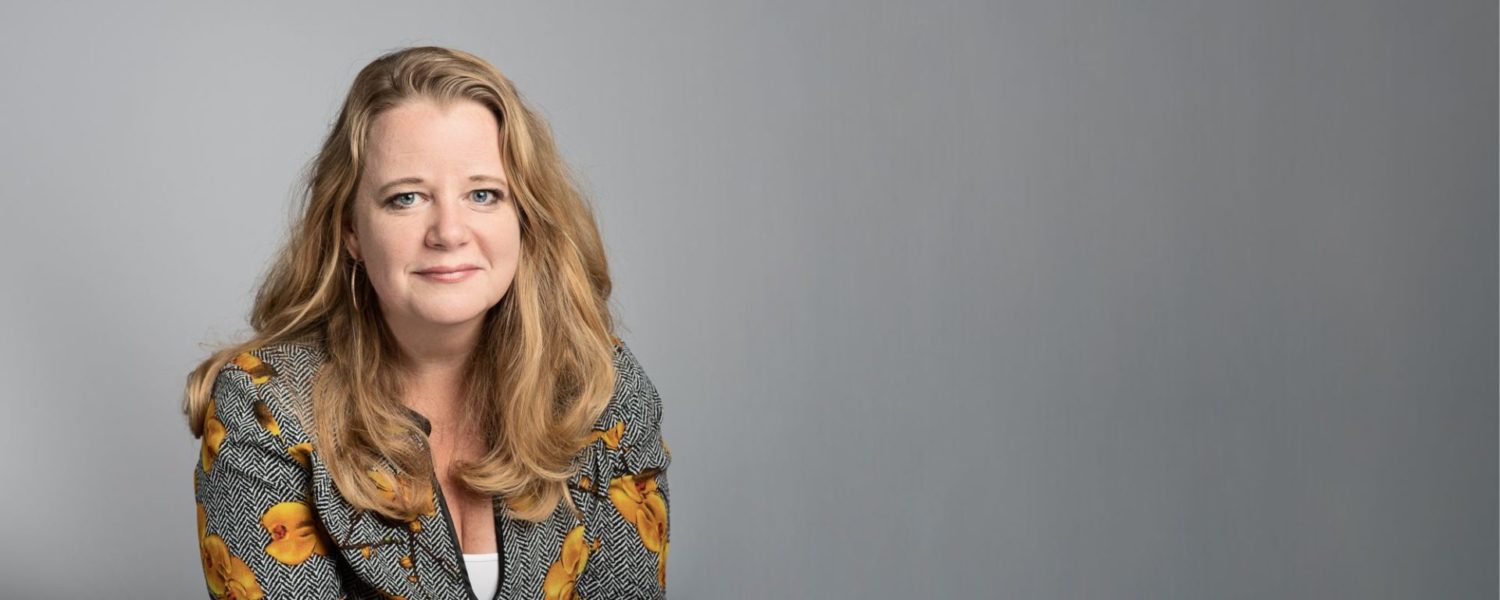
How can we work more sustainably, smarter and healthier? In this edition, Professor of Materials Chemistry Moniek Tromp explains the importance of focusing on battery technology. She is working on the battery of the future: sustainability first.
Catalysis, parasitic reactions, reversibility, nickel manganese cobalt oxide. Professor Moniek Tromp deals with it every day. The authority in Europe is working on the battery of the future. In Groningen.
We have space, we have an educated workforce, we have talent, we have infrastructure. And we have Moniek Tromp. The Professor of Materials Chemistry at the University of Groningen is an additional argument for companies to come to the Northern Netherlands. Indeed, several (large international) parties have decided to come to our part of the country for the production of batteries and their components. For your information, that always involves rechargeable batteries, also called batteries.
It may be going a bit far to attribute it all to Moniek Trump. What is certain is that she has helped. Batteries are booming and are becoming increasingly important. We are developing specimens that last longer and are also more sustainable in other ways. Batteries from raw materials from Europe, batteries based on common minerals, recyclable too. If that succeeds, it will mean a lot.'
With rising energy prices, it becomes even more clear how much we all need to move toward a sustainable energy supply. 'That was already true, of course, because we have to save our climate. But you always see that money turns out to be another slightly stronger driver.' So we are betting globally on wind and solar energy. A good idea, provided you have enough capacity to store peaks in energy production. Hydrogen can play a role in that, but it won't work without batteries. 'We need it all. Hydrogen and also different types of batteries, depending on location, application and required properties.'
Frankly, the Netherlands is a bit behind on the battery front. We have focused a little too much on hydrogen for my taste.
Moniek Tromp
As much energy storage as possible and no degeneration, that is the goal
With her research group, Tromp is studying in detail how rechargeable batteries work. 'We use X-rays to see exactly what happens. That way we know how electrodes behave and we can see why the capacity of batteries slowly decreases. That is what we are trying to solve by using different materials and structures. No degeneration. That's our ultimate goal, along with increasing energy capacity. You don't want people to have to have a shipping container at home, so to speak, for energy storage.'
Nice ecosystem
In this respect, she is in the right place in Groningen. The expertise of the university's Faculty of Materials Science enjoys international fame. With illustrious predecessors such as Sibrandus Stratingh (first electric car in 1835) and Ben Feringa (Nobel Prize 2016 for 'electric' nanomotor), the RUG was already well on the electric road.
'Apart from that, you can see that a nice ecosystem is developing here. The university is positioning itself as a battery research institute, Chemport Europe has a unique proposition. There is green power there to produce batteries. And that's what companies are looking for. Who want to contribute to reducing their footprint. Batteries themselves are important in this regard, but production must also be sustainable.'
To move forward, academia and industry must embrace each other, is her firm belief. 'Look, we do basic research, but not just to write papers that disappear into the bottom drawer. We want to have impact, to contribute to a better world. And that's only possible if our ideas and findings are used by commercial parties. Conversely, we can help industry improve battery technology. For the same reason, but also because it produces beautiful research.'
Catch up
Startups knock on the door to have their technology tested, multinationals settle in the North because of the knowledge and expertise of Moniek Tromp and her researchers. 'Yes, that has been an important consideration for a few concerns, I know. That they want to establish themselves in the Northern Netherlands is great, but for a foreign party the distances in the Netherlands are short anyway, so they also look at the big picture. Groningen is Amsterdam-North, as it were. I welcome all developments in the battery field, throughout the Netherlands, provided they are good for a sustainable future'.
Her researchers are working on different trajectories. On the one hand, they are looking at batteries at a fundamental level to understand their exact operation. On the other - with a consortium of universities, colleges and companies - they are thinking about further perfecting existing lithium batteries in the BatteryNL project. 'It's all important. You can't do one and leave the other. For our mobility we need a lot of battery power, for storing
energy at home as well, and depending on the application, different demands are made on your battery and a different solution is probably needed. There's going to be a lot going on.'
Tromp was recently named Battery Figurehead of the Netherlands. In that role, her job is to spur research into battery technology in the Netherlands and boost business. 'To be honest, the Netherlands is a bit behind in the battery field. For my taste, we have focused a little too much on hydrogen. It is very good that we are now catching up. As a 'sector' we recently presented the Battery Systems Action Agenda to parliament. It was about time. Now we have to make sure that we also get back to the table in Europe.'
Where is the battery headed? 'It will soon be sustainable, reusable, last a very long time and have ample raw materials that can be mined without serious labor conditions. A glimpse into the future: we are working on a battery made of iron and air. That would be ideal for use at home and open up a whole new world.'
Whether the production of those beautiful dreams will take place in the Northern Netherlands, the future will tell. What is certain is that companies are coming here now to test, to learn, but also to simply manufacture. Tesla came a little too early, the successors are ready.

